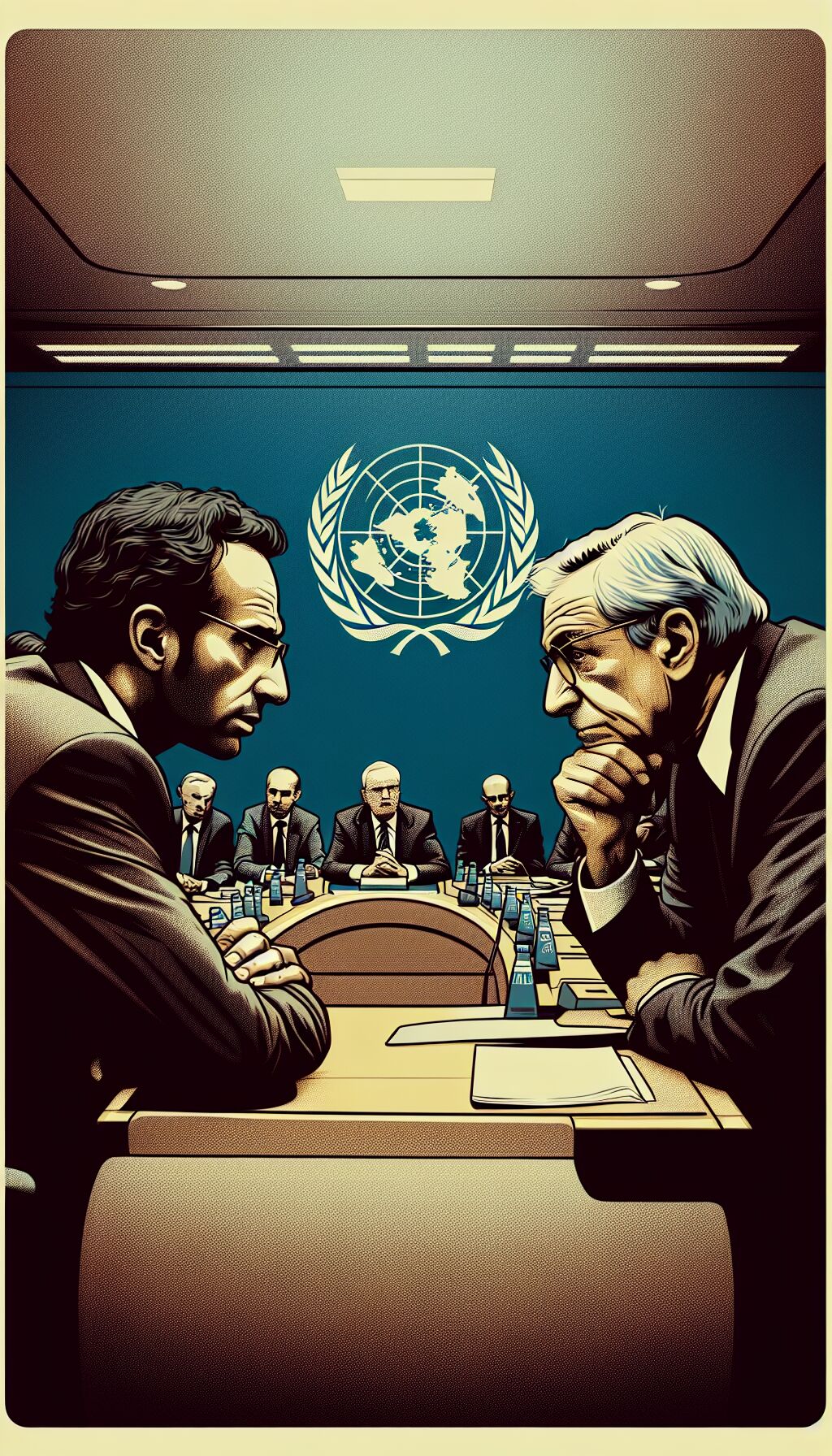JD Vance and Zelenskyy: A Meeting of Contrasts
On Friday, Vice President JD Vance is scheduled to meet with Ukrainian President Volodymyr Zelenskyy at the Munich Security Conference. This meeting marks a significant pivot for Vance, who has spent years criticizing American financial support to Ukraine amidst its ongoing conflict with Russia.
The Munich Security Conference: A Platform for Diplomacy
The Munich Security Conference, renowned for its role in shaping international security policy, will serve as the backdrop for this notable meeting. A spokesperson for Vance confirmed his participation, coinciding with U.S. envoy Keith Kellogg’s upcoming visit to Ukraine on February 20. This convergence of American political figures underscores the importance of the current situation in Ukraine on the global stage.
Former President Donald Trump has also indicated support for Zelenskyy, announcing that Treasury Secretary Scott Bessent will meet with him in Ukraine. In a post on Truth Social, Trump expressed his desire for a swift end to the conflict, stating, “This War MUST and WILL END SOON — Too much Death and Destruction. The U.S. has spent BILLIONS of Dollars Globally, with little to show.”
Discussions Surrounding Sanctions and Support
During his meeting with Zelenskyy, Bessent is expected to engage in discussions about sanctions, the significance of rare earth minerals, and the allocation of U.S. financial aid. In a bid to establish peace, Trump directed Kellogg to explore potential resolutions with Ukrainian and Russian officials. Notably, Kellogg has already initiated talks with Ukrainian representatives at the State Department.
High-profile attendees at the Munich conference include Secretary of State Marco Rubio and Defense Secretary Pete Hegseth, underscoring the critical discussions scheduled on the Russia-Ukraine conflict. The urgency of these dialogues is palpable, as evidenced by statements from European officials who describe the U.S. as lacking a concrete plan to end the war, despite public assertions to the contrary. “Munich is too soon to unveil a Ukraine peace plan,” an official revealed, emphasizing the complexity of negotiations involving Trump, Zelenskyy, and Russian President Vladimir Putin.
Trump’s Approach: Rare Earth Minerals and Military Aid
Trump, in recent remarks, hinted at the possibility of a personal meeting with Zelenskyy, aiming to further solidify U.S.-Ukraine relations. In an interview with Fox News’ Bret Baier, he stressed the importance of Ukraine granting the U.S. access to its vast rare earth mineral resources in exchange for military assistance. He provocatively noted that “they may make a deal, they may not make a deal. They may be Russian someday, or they may not be Russian someday,” suggesting a pragmatic approach to the ongoing situation.
He elaborated on the financial expectations from Ukraine, stating, “We are going to have all this money in there, and I say I want it back. And I told them that I want the equivalent, like 0 billion worth of rare earth.” Zelenskyy has responded positively to Trump’s proposal, characterizing it as “fair.” This emerging dialogue raises questions about the future of U.S. military aid and how it may be linked to Ukraine’s resources.
The Stalemate: Zelenskyy and Putin’s Stance
Despite these promising discussions, both Zelenskyy and Putin have remained adamant against direct negotiations with each other. Putin’s conditions for peace include Ukraine’s withdrawal from contested regions in the south and east, an ultimatum that Zelenskyy has publicly dismissed. While he acknowledges the potential need for a diplomatic resolution, he firmly rejects any territorial concessions. This deadlock illustrates the complexity and sensitivity of the situation.
Vance’s Transformation: From Critic to Collaborator
Vice President Vance’s journey from a vocal critic of Ukraine aid to a participant in high-stakes discussions represents a noteworthy shift. In February 2022, he candidly expressed, “I gotta be honest with you, I don’t really care what happens to Ukraine one way or another,” as Russia’s invasion unfolded. Vance even characterized Putin as significantly less threatening than historical adversaries like Adolf Hitler. Such sentiments highlighted his initial skepticism regarding U.S. involvement in the conflict.
A Shift in U.S. Foreign Policy?
Recent reports suggest a growing perception that Trump’s election has transformed the U.S. into a “risk to be hedged against” in the international arena. A Munich Security document cautioned, “Without global leadership of the kind provided by the United States for the past several decades, it is hard to imagine the international community providing global public goods like freedom of navigation.” This sentiment echoes concerns about the U.S. abdicating its traditional role as Europe’s security guarantor, further complicating Ukraine’s position in the global hierarchy.
Conclusion: Navigating a Complex Landscape
The upcoming meeting between JD Vance and Volodymyr Zelenskyy symbolizes a pivotal moment in U.S.-Ukraine relations, with potential implications for global security dynamics. The contrast between Vance’s previously staunch opposition to Ukraine aid and his current role highlights the complexities of American foreign policy amid ongoing conflicts. As dialogues at the Munich Security Conference unfold, the international community watches closely, hopeful for resolutions that prioritize peace and stability for Ukraine and beyond.
